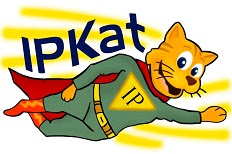We hear from Brazil that the Third Chamber of the Superior Court of Justice (STJ) had denied an appeal brought by Monsanto Technology LLC to extend the term of the patent for genetically modified soybeans in Brazil. The court confirmed that the patent expired on August 31, 2010, i.e. 20 years after the date of its first abroad application.
Monsanto argued that the validity of the patent should extend as to match the foreign patent where it was granted. It is disputed that the remaining term of protection for the patent should be counted from the date of filing in Brazil and not the foreign application held abroad. Monsanto also argued that the trial of the case by the STJ should be suspended because a pending decision in the Supreme Court regarding a direct action of unconstitutionality which address the patent filing (Articles 230 and 231 of Law 9,279/96 (Industrial Property Law).
THE PIPELINE SYSTEM
HERE COMES THE PROBLEM: PATENT PROTECTION AND TERM
Some developing countries such as Brazil, Thailand, Argentina and Uruguay have provided pipeline patent protection BUT they parameters do differ. Yet we have seen steadiness in Brazil regarding the patent term. Since 2010, the Brazilian Instituto Nacional da Propriedade Industrial (INPI) together with Brazilian courts, have applied an established rule i.e. ‘the twenty year patent term should not begin with the date the pipeline patent was granted but rather the earlier abroad filing date’. Clearly the term of specific pipeline patents has been effective and thus, some of the most successfully pharmaceutical companies have seen their drugs with shorter terms of protection e.g. Pfizer’s Viagra and Lipitor and Novartis’ Gleevec.
In 2011, Monsanto was also defeated by the same rule in Brazil: Monsanto unsusceffully brought a claim to extend two patents which involved the herbicide Roundup (here).
JUNE 2013
In this particular case I read another interesting fact: if the application made abroad was abandoned, this still will be the relevant date for calculating the term from which the 20yrs should run. The court's statement goes as follows: "the protection offered to foreign patents, called pipeline patent, lasts for the remaining term of protection in the country where it was deposited/first request, to the maximum term of protection granted in Brazil - 20 years - from the date of the first filing abroad, even if subsequently abandoned.”
Finally, the STJ noted that the pending trial in the Supreme Court that discusses the constitutionality of the Industrial Property law does not suspend any other actions that are handled at the STJ.













